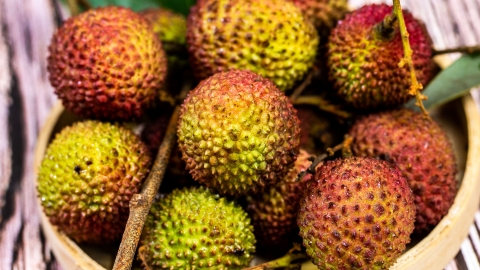Can patients with hyperthyroidism eat lychee?
Hyperthyroidism refers to an overactive thyroid gland. Under normal circumstances, patients with hyperthyroidism can eat lychee, but should consume it in moderation. Detailed analysis is as follows:

Lychee contains abundant nutrients such as vitamins and minerals, and is not a high-iodine food. Patients with hyperthyroidism generally will not experience significant adverse effects from moderate lychee consumption. At the same time, the excessive production of thyroid hormones in patients accelerates basal metabolic rate and increases consumption, thereby significantly increasing the demand for various nutrients. Moderate lychee consumption can help replenish energy.
However, some patients may experience gastrointestinal disturbances such as diarrhea. Since lychee has a high sugar content, excessive consumption may increase the burden on the intestines, triggering or worsening diarrhea, so moderate consumption is recommended. Additionally, some patients may be allergic to certain components of lychee. If allergic reactions such as rashes or difficulty breathing occur after consumption, lychee intake should be stopped immediately and medical advice sought.
In daily diet, attention should be paid to food diversity and balance, avoiding excessive intake of any single food, to maintain good health.






